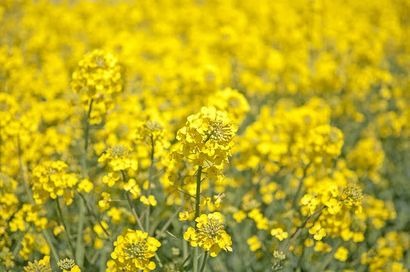ISLAMABAD: To lessen its reliance on edible oil imports, Pakistan needs to plant canola on a greater scale. This will help the country save its foreign reserves.
In Pakistan, canola is the most significant brassica crop cultivated for oil seed. It has a high oil content of 44-46%. Additionally, its meal contains 38-40% of protein with a full spectrum of amino acids.
Talking to WealthPK, Dr Ehsan Ullah Khan, a senior scientific officer at National Agriculture Research Centre (NARC), said canola mustard is a profitable crop due to its high productivity, and it has the potential to help reduce the country’s import bill.
“Canola oil is a cheaper and healthier cooking oil on the market, and the leftover canola meal from oil extraction is a valuable source of high-protein meal for livestock,” he said.
“This season we will grow canola on 100 to 200 acres. We produced approximately 50 tonnes of canola this year, and we ended up with about 30 tonnes of canola seed after washing and grading. A healthy crop can produce roughly 100 maunds per acre which can help boost our oil production,” he said.
Dr Ehsan said a good harvest of canola can be produced with timely cultivation.
“All types of soils, except sandy and beech forest soils, are suitable for canola crop cultivation. This crop yields higher if the irrigation supplies are good,” he said.
“Our climate and fields are ideal for growing canola, which is done by drilling, and 1.5 to 2kg seeds are used per acre. The seeds shouldn’t be buried deeper than 1 to 1.5 inches,” he added.
Dr Ehsan said canola crops typically need irrigation three to four times. After one month of harvesting, water is needed for the first time. The second time is during the blossoming stage and the third time is when seed is formed.
Very commonly, the canola crop comes under attack from aphids, bugs, and earth mites. Attacks by aphids intensify as plants bloom. Their attacks lessen if wheat is grown in a few rows next to the canola crop.
Canola-quality rapeseed variants produce superior oil for human consumption, and their meal makes a superior animal and bird feed. It is grown in all of Pakistan’s provinces on a total of 26.02 thousand hectares land, with an annual production of 102,000 tonnes (2018-19).
“Pakistan’s annual requirement of edible oil is about five million tons, whereas only 30% is locally produced,” Dr Ehsan mentioned.
“If farmers cultivate canola according to instructions of agro-scientific researchers, they can earn higher yields with less input cost, which will increase their income,” he said, “scientists must ensure that the innovations and new technologies they develop reach the farmers.”
-INP






